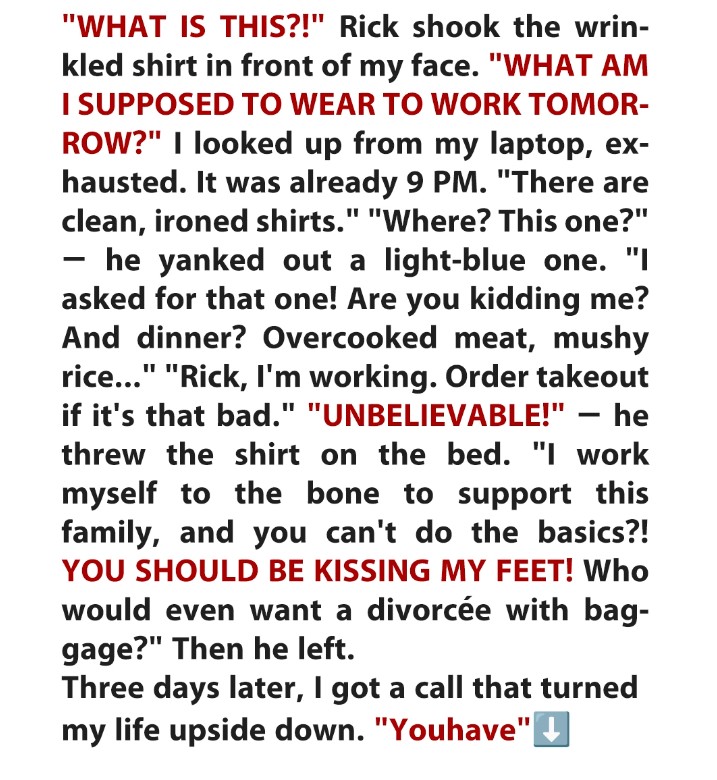Rick used to be the man of my dreams. At 23, I fell for his charm, his promises of porch swings and sunsets, and the way he made me feel like the center of his universe. We married, had two kids, and built a life that looked perfect from the outside. But behind closed doors, the fairy tale soured.
Over time, Rick’s affection curdled into criticism. Compliments became complaints. He nitpicked everything—how I loaded the dishwasher, how I dressed, how I cooked. I was no longer his muse; I was his scapegoat.
Then came the night that broke me.
He stormed into our bedroom, furious over a wrinkled shirt and overcooked rice. “You should be kissing my feet!” he screamed, waving the shirt like a battle flag. I didn’t cry. I didn’t argue. I just stood there, hollowed out and numb. That night, I made a decision—not out of rage, but clarity.
Three days later, karma knocked.
Rick got a call from work: his promotion was revoked. Turns out, his behavior hadn’t gone unnoticed. A colleague had filed a formal complaint about his temper and condescension. HR launched an investigation. Suddenly, the man who demanded worship was being held accountable.

I didn’t gloat. I didn’t say “I told you so.” I simply packed a bag, took the kids, and left. Not in anger—but in peace.
Rick’s downfall wasn’t my revenge. It was the universe reminding him that respect isn’t optional. And for me? It was the beginning of reclaiming my voice, my dignity, and the quiet strength I’d buried beneath years of emotional erosion.


